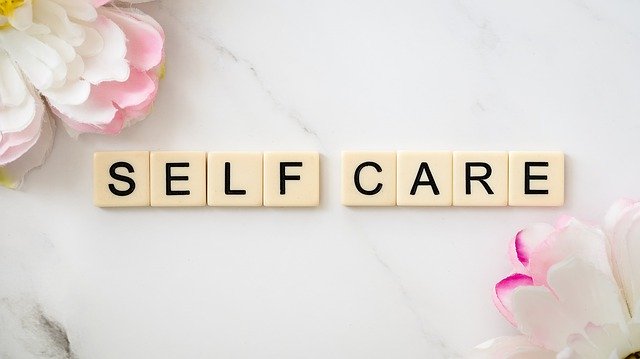
What is self-care?
The term “self-care” is a buzzword in certain circles, but what does it actually mean, and how does one start doing it? Authors Lee and Miller defined self-care as, “a process of purposeful engagement in practices that promote holistic health and well-being of the self.” If that seems a little vague, it’s in part because self-care is as varied and unique as we are! Each person (“self”) determines what practices best promote their well-being. Self-care is that which we purposefully do to attend to our whole selves’ wellness – mind, body, and soul. Self-care is a practice or process that occurs over time and must be repeated for full benefit, not a one-time event.
Some among us might be able to rattle off a long list of practices and experiences they consider to be effective self-care; others might struggle to identify one or two. We might also find in times of high stress or challenge, our previous self-care strategies are no longer feasible, powerful enough, nor as helpful as they used to be. New situations sometimes require developing new approaches.
Some of the best self-care practices are comprised of simple actions that integrate smoothly into your lifestyle. Self-care is not inherently expensive or time-consuming. (But they certainly could be, if that’s your thing!)
Why does it matter?
Cancer is primarily out of our control. Its demands – treatment, side effects, surgeries, etc. – can bring feelings of helplessness or frustration. There are, however, some things we can do to regain a sense of control. We can’t change cancer, but we can make decisions about how we care for ourselves and our loved ones. Self-care is one way to “get back in the driver’s seat.” Through self-care, we pay attention to our needs, strengthen our reserves, and perhaps even build resilience. Learning to lovingly care for ourselves is not the same thing as being self-indulgent. Self-care during cancer treatment is an essential and vital part of happiness and health for patients and caregivers.
Research shows that regular self-care practices can reduce the adverse effects of stress, sleep disturbances, and anxiety. It has been shown to prevent overload and help build focus. It’s a personalized, oftentimes free thing we can do to help ourselves and be proactive about wellness.
Simple Self-care Techniques to Consider
- Slow down and find quiet time for rest and pause. “Slowing down” doesn’t mean just physically; our minds can still be moving very fast when our bodies are unmoving. Practice mental stillness. Try to focus on one day or one moment at a time.
- Do an activity you’ve always loved (or discover a new one). Knitting, reading, taking a bath, going for a walk, baking – make time for the things that make you feel accomplished, at peace, or fulfilled. Share your priorities with friends and family so they can help you schedule in meaningful activities.
- Try starting a journal. Even if you’ve never been a writer, finding a space to record thoughts, worries, and experiences can be liberating.
- Practice positivity and gratitude. No one is naturally grateful or positive all of the time, but keep your eyes open for good things, no matter how small. You could combine this with journaling, by writing down gratitudes each day.
- Listen to a podcast. Start with a topic that interests you, anything from crime stories to vintage cars to TEDTalks, and then search in iTunes, Spotify, or similar.
- Eat nourishing foods –
- Do some light exercise. Exercise can seem daunting, but it’s an important part of recovery and healing. Small movements can have big impacts. Note: before embarking on a new fitness regimen, reach out to your medical provider for clearance.
- Spend time with loved ones. If all you have energy for is a cup of tea with a treasured friend, so be it. Connect with loving people. You do not have to go through your experiences alone.
- Prioritize sleep. Sleep is incredibly important for our bodies and minds.
- Try mindfulness. This can be as simple or as complex as you feel ready for, including just a reminder to self to breathe deeply. You could also try an app.
- Challenge yourself to ask for help. It’s normal to feel uncomfortable, but asking for help is not an admission of failure. It’s brave to acknowledge our limitations. Asking for help from those you trust can ease your burden.
- Prioritize your tasks and time. This could mean saying no, which is easier said than done. Are you feeling overwhelmed or introverted? Say no. It’s OK.
- Be kind to yourself. There is no one “right” way to go through the experience of cancer. Mistakes and stumbles are part of the process of finding out what does work for you.
Want more?
Here are some extended readings on this topic.
- Five Things that Self-Care Isn’t
- 8 Self-Care Tips for Cancer Survivors
- Self-Care Tips for Cancer Caregivers
- Cancer Taught Me That Self-Care Isn’t Selfish, It’s Essential
- Methods of Self-Care to Deal with Stress and Anxiety
- Self Care (For the Real Life Cancer Patient)
We would love to hear from you! What self-care practices do you utilize? What techniques would you like to integrate into your practice?
Lori Zaspel, LCSW (she/her) is a geriatric social worker, therapist, and co-founder of the Philly Death Doula Collective. She specializes in providing support, validation, and education to grievers in a world that doesn’t do a great job at any of the above. In addition to that, she’s passionate about flea markets, reading, cheesy Christmas movies, and her pets.
2 thoughts on “Self-care Isn’t Selfish”